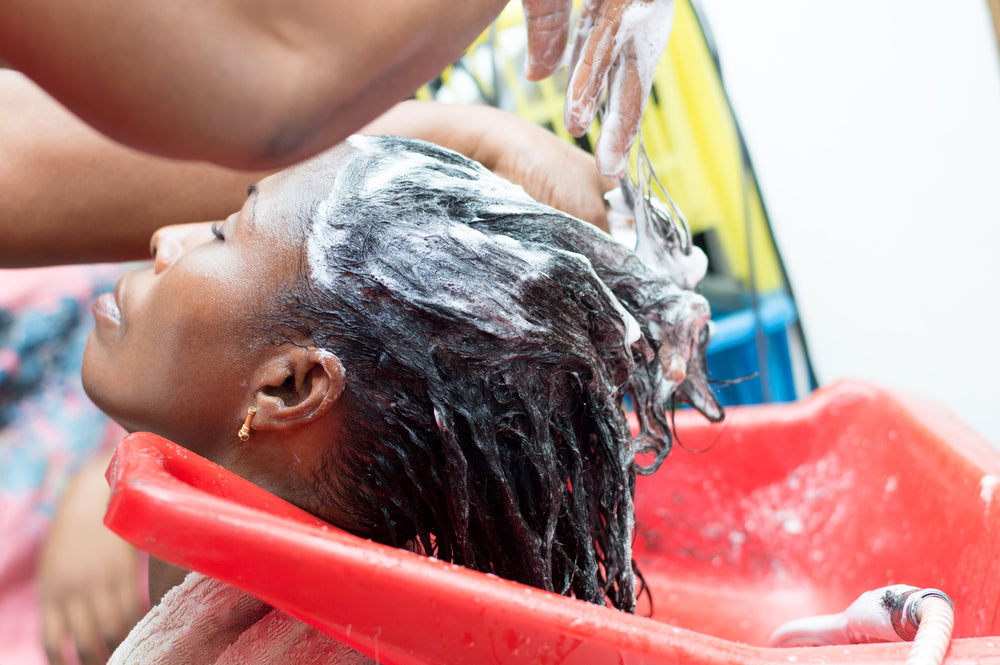What Is Bentonite Clay?
Benefits of Using Bentonite Clay on Natural Hair
When it comes to hair, NCBI states that bentonite clay has been used in Iran and other places around the world as a go-to hair cleanser and softener. The effects of bentonite on human hair haven’t been scientifically assessed, but there are records that show bentonite actually aids growth on sheep wool.
Despite this, there is evidence that supports bentonite being beneficial to skin—meaning it can positively affect a scalp. Bentonite has been seen to diminish poison ivy and poison oak rashes (as well as other forms of allergy-related contact dermatitis in North America), which is great news for the dry and irritated scalps that can sometimes accompany natural hair types. It can also create a protective barrier or help heal minor wounds, so you can experience a little relief from itchiness.
How to Use It
When your mask is ready, apply it to your hair in sections. This can be done to clean, damp, or wet hair, but the most important part is that you evenly saturate all of your hair. Keeping a spray bottle handy will allow you to spritz any section that may dry before you finish working the mask through.
Once your hair is fully coated, you can either leave it as is or cover your head with a plastic cap to trap in the heat for extra penetration. A hooded dryer or steamer can also be used. You should wait about 25 minutes before proceeding to the next step.
Rinsing the hair and scalp properly is of utmost importance since you’re trying to cleanse the follicle sebum from your scalp to get to the hair follicle.
Deep Conditioner with Bentonite Clay and Rhassoul Clay
“Rinsing the hair and scalp properly is of utmost importance since you’re trying to cleanse the follicle sebum from your scalp to get to the follicle,” says certified trichologist Liana Robinson of Y.O.U Hair Wellness & Lifestyle Spa. She also advises using a certified food grade bentonite clay, which helps to improve hair’s absorption of nutrients.

